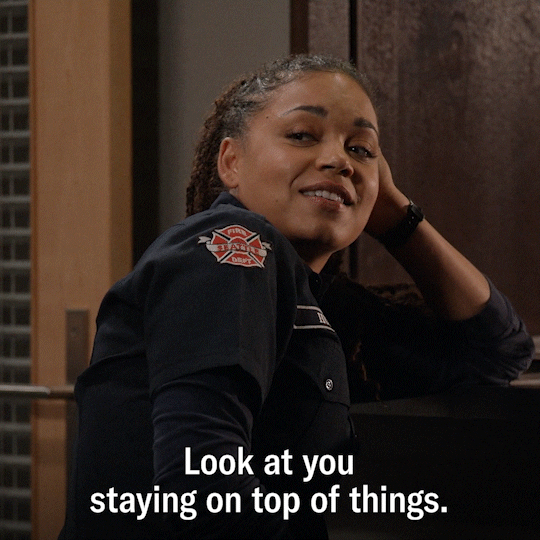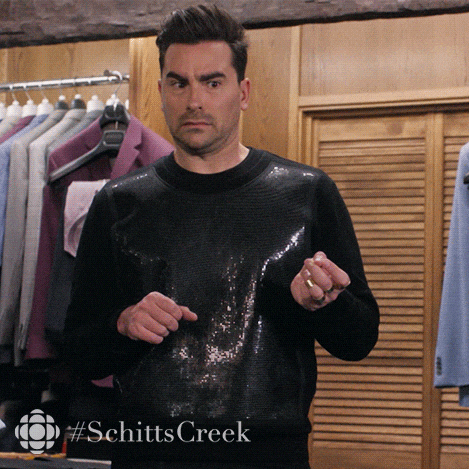7 Things Wedding Planners Wish You Knew (Honest Industry Secrets)
Inspired by the Big Wedding Planning Podcast
Do I Need a Wedding Planner? What Does a Wedding Planner Actually Do?
Ever wondered what's really going through your wedding planner's mind? After coordinating hundreds of weddings and working alongside countless vendors, we've learned some valuable lessons we wish every couple knew before diving into wedding planning. These insider tips will help you work more effectively with your wedding team, avoid common pitfalls, and actually enjoy the planning process—whether you hire a planner or not.
Here are some honest truths about wedding planning—including tips for working with vendors that will make your life so much easier. If you've ever wanted to be inside a wedding planner's mind, this blog is for you.
1. Come Prepared to Vendor Meetings (It Makes All the Difference)
Meeting with prospective wedding vendors is exciting, but showing up prepared makes these consultations so much more productive—and helps you make better decisions about who to hire.
Do Your Homework Before the Meeting
Before you sit down with any vendor (planner, photographer, florist, caterer), take 20 minutes to:
Browse their website thoroughly - Understand their services, pricing structure, and what they specialize in
Review their Instagram and social media - Get a feel for their aesthetic, recent work, and personality
Read reviews - Look for patterns in what past clients loved or mentioned as concerns
Prepare questions specific to them - Ask about things you noticed on their portfolio, not just generic questions
This homework serves two purposes: you'll make a stronger connection because you've shown genuine interest, and you'll have a better sense of whether their style and approach align with your vision.
Understand Each Vendor's Scope of Work
Here's a big one that causes confusion: wedding planners are not always wedding decorators or setup crew. I get asked this all the time, and it's an important distinction to understand before your consultation.
What Wedding Planners Typically DO:
Manage your timeline, budget, and vendor coordination
Design your wedding day flow and logistics
Handle day-of coordination and troubleshooting
Communicate with all vendors on your behalf
Create detailed timelines and floor plans
Be your advocate and problem-solver
What We Typically DON'T Do (Unless Specifically Contracted):
Physically set up and break down tables, chairs, and décor
Arrange florals or centerpieces (that's your florist's job)
Serve food or bartend (that's your catering team)
Act as decorators or DIY setup crew
Some planners offer décor setup as an add-on service, but it's not standard across the board. If you're expecting your planner to physically arrange 20 centerpieces or set up your escort card display, clarify this during your initial meeting and expect it to be an additional service.
Pro tip: Come to vendor meetings with a clear understanding of what services you need so you can ask the right questions and get accurate quotes.
2. We Only Need Final Decisions (Not Every Thought in Between)
One of the most common challenges wedding planners face—and honestly, all wedding vendors—is managing communication when couples share every single thought, change, and consideration throughout the planning process.
Why Over-Communication Can Backfire
Don't get me wrong—we want to hear from you! But here's what happens when you email your vendors with every small change during the 12-18 months of planning:
Things get muddled and confusing: If you email in January saying you want blush bridesmaid dresses, then in March mention you're thinking about sage green, then in May circle back to blush... your vendors might be confused about what's actually decided versus what's still being considered.
Details get lost: When there are 47 emails about napkin colors spanning 8 months, it's easy for the actual final decision to get buried in the thread.
You're likely to change your mind: Wedding trends evolve, your vision develops, and what you loved in January might not resonate in October. That's totally normal! But sharing every evolution of your thinking creates unnecessary work for everyone.
The Better Approach: Ask for Deadlines
Instead of sharing every decision and revision, ask your vendors this magic question: "When do you need my final decision on [specific item]?"
This approach gives you:
Clear deadlines to work toward
Freedom to explore options without feeling like you're committing too early
Less vendor confusion because they only receive confirmed, final decisions
Reduced email overwhelm for everyone involved
For example:
"When do you need my final guest count?" (usually 2-4 weeks before the wedding)
"When do you need to know our final menu selections?" (typically 4-6 weeks out)
"What's your deadline for ceremony music choices?" (varies by DJ/musician)
Then mark those deadlines in your planning calendar and make your final decision by that date.
If You Have a Wedding Planner
Good news—if you've hired a wedding planner, this entire burden shifts to us! We'll communicate with all your vendors on your behalf, manage deadlines, relay final decisions, and keep everyone on the same page. This is especially valuable for couples who don't have a planner and end up managing dozens of vendor communications themselves while trying to work full-time and plan a wedding.
3. The Planner-Couple Relationship Requires Trust and Communication
Your wedding planner becomes an integral part of your wedding journey—often spending more time on the details of your big day than anyone except you. This relationship works best when there's mutual trust, respect, and clear communication.
Help Your Planner Help You
One of the most important things you can do is keep your family and friends in the loop about your planner's role and the authority they have on your wedding day.
Why this matters:
We get it, family can make us all feel like this sometimes.
We've all seen scenarios where a well-meaning mother-of-the-bride or opinionated bridesmaid tries to override the planner's decisions on the wedding day because they weren't aware of the planner's scope. Maybe they change the seating arrangements, move decorations, or alter the timeline—all with good intentions, but it creates chaos and undermines the carefully crafted plan.
Before your wedding day, communicate clearly:
"Our wedding planner will be coordinating everything on the day—please direct any questions or concerns to them."
"If anything seems off or you notice an issue, tell our planner rather than trying to fix it yourself."
"We trust our planner completely to make day-of decisions, so please support their guidance."
This isn't about control—it's about allowing your planner to do what you hired them to do without conflicting directions from multiple people.
What Trust Looks Like
When couples truly trust their wedding planner, the entire process becomes smoother:
You can relax knowing someone capable is managing the details
Your planner can make quick decisions on your behalf when needed
Day-of problems get resolved without you even knowing they happened
You actually get to enjoy being a guest at your own wedding
If you find yourself micromanaging your planner or second-guessing their every suggestion, it might be a sign you hired the wrong person. The right planner-couple fit means you feel confident in their expertise and can genuinely let go of control.
Communication Goes Both Ways
While we want your trust, we also need your input! Be honest about:
Your priorities (what matters most to you?)
Your concerns (what keeps you up at night about the wedding?)
Your family dynamics (any relationships we should navigate carefully?)
Your communication preferences (do you prefer texts, emails, or phone calls?)
The more we understand about you as a couple and your family dynamics, the better we can serve you.
4. We Handle Problems Behind the Scenes (So Stop Looking for Them!)
Here's a truth that might surprise you: there are hiccups throughout almost every wedding day that the couple never sees. And that's exactly how it should be.
The Reality of Wedding Day Problem-Solving
As wedding planners, we're constantly troubleshooting behind the scenes:
The florist arrived 45 minutes late, but we adjusted the timeline and got everything in place before you saw anything
A bridesmaid's dress zipper broke, but we had our emergency kit and fixed it in 3 minutes
The caterer forgot the vegetarian meals, but we worked with them to quickly prepare alternatives
It started drizzling during cocktail hour, but we moved guests under cover before anyone got uncomfortable
The best man forgot the rings at the hotel, but we sent a groomsman to retrieve them during photos
These things happen. Life isn't perfect, vendors are human, and unexpected situations arise. Our job is to resolve issues quickly and quietly so you can stay present and joyful.
Don't Go Looking for Problems
Here's the thing: if you're scanning the room for issues, you'll find them. It's like when someone says "don't think about a yellow car" and suddenly you notice yellow cars everywhere.
If you spend your wedding day:
Checking if décor is placed exactly where you imagined
Monitoring whether vendors arrived on time
Watching to see if Uncle Bob is drinking too much
Worrying about whether the cake looks perfect
...you'll miss the magic happening all around you. You'll be so focused on finding problems that you'll miss the joy, the laughter, the meaningful moments, and the love surrounding you.
Trust Your Team and Stay Present
We're there to be quick on our feet and resolve issues before you notice them. That's literally our job. So instead of problem-hunting, focus on:
The way your partner looks at you
The tears in your dad's eyes during your dance
The laughter of your best friends on the dance floor
The sunset during cocktail hour
The feeling of being surrounded by everyone you love
The best wedding days are the ones where couples trust their team, stay present, and allow themselves to be swept up in the experience rather than managing it.
5. We're Not Judging Your Budget (And You Shouldn't Either)
Let's talk about the elephant in the room: money. Wedding costs have become a source of stress, comparison, and sometimes shame for couples—and I want you to know that your budget is yours alone, and we're not judging it.
Every Budget Is Valid
Whether you have $5,000 or $150,000 to spend on your wedding, here's what matters: it's what you feel comfortable with, and it reflects your priorities and financial reality.
We've planned beautiful, memorable weddings at every price point. Some of the most joy-filled, intimate celebrations we've coordinated have been modest budget weddings where couples focused on what truly mattered to them. And we've also planned luxury weddings where couples chose to invest significantly because they valued the experience.
Neither is better or worse—they're just different.
Our Job: Aligning Expectations with Reality
What wedding planners DO care about is helping you align your expectations with your budget and guest count based on industry standards. This is where our expertise becomes invaluable.
We'll have honest conversations like:
"With a $15,000 budget and 150 guests, here's what's realistic for catering in your area."
"If luxury florals are your top priority, we might need to adjust expectations for other elements."
"Your Pinterest inspiration features $80-per-person catering, but your budget allows for $35 per person—let's find creative solutions."
This isn't judgment—it's us using our industry knowledge to set you up for success and prevent disappointment. We want you to have a wedding you're proud of within your means, not one that puts you in debt or falls short of your vision because expectations weren't managed early on.
Budget Honestly with Your Vendors
One of the biggest mistakes couples make is hiding their budget from vendors, thinking they'll get lower quotes if vendors don't know what they can spend. This backfires.
When you're transparent about your budget, good vendors will:
Tell you immediately if they can work within it
Suggest creative alternatives to maximize your dollars
Not waste your time (or theirs) on proposals that don't fit
Respect your priorities and help you allocate funds wisely
If a vendor judges you for your budget or makes you feel bad about what you can afford—walk away. They're not the right fit, and there are plenty of professionals who will treat you with respect regardless of your spending capacity.
Overwhelmed with budgeting your wedding? We offer budget development and guidance with our full and partial wedding planning services.
6. We're Juggling Dozens of Weddings at Once (Please Be Patient)
Please be patient with us if we:
Ask you the same question twice (we're tracking hundreds of details across multiple events)
Blank on a bridesmaid's name even though you've mentioned her before
Take 24-48 hours to respond to non-urgent emails during busy wedding season
Need to reference our notes during conversations to keep details straight
Promise: we still love you and care deeply about your wedding. We just need grace as we manage the mental load of coordinating multiple major life events simultaneously.
7. Something Will Inevitably Go Wrong (And That's Okay)
I'm going to be honest with you: even the most meticulously planned, well-executed wedding will have a hiccup. Life isn't perfect, and weddings aren't either.
Why Perfect Weddings Don’t Exist
No matter how much we plan, prepare, and coordinate, variables exist beyond our control:
Weather (that forecast said sunny, but here we are in a drizzle)
Human error (vendors are people, and people make mistakes)
Technology failures (microphones cut out, projectors malfunction, playlists glitch)
Family dynamics (someone shows up late, someone drinks too much, someone cries at the wrong moment)
Unexpected circumstances (traffic delays, wardrobe malfunctions, forgotten items)
Here's the good news: these hiccups are usually small things that don't ruin your day unless you let them.
Your Wedding Day Mindset Matters Most
Of course we're there to help mitigate problems and find solutions, but on the wedding day, it's up to you to breathe in and accept whatever happens. Your response to imperfection will determine whether a hiccup becomes a disaster or just a memorable part of your story.
Sometimes the best wedding stories come from the hiccups—the unexpected moments that made your day uniquely yours rather than picture-perfect and generic.
The choice is yours:
You can panic when it starts raining and spend cocktail hour stressed about your outdoor ceremony plan
Or you can laugh, embrace the change, and create beautiful memories anyway
The couples who have the most joy on their wedding day are the ones who decide ahead of time: "Whatever happens, we're married at the end of the day, and that's what matters."
Bonus: Don't Forget to Thank Your Vendors
I'm blessed to work with downright amazing and kind clients who express their gratitude regularly—but this reminder is worth repeating because vendors genuinely appreciate recognition.
Why Vendor Appreciation Matters
Your wedding vendors aren't just providing a service—they're investing their time, energy, creativity, and often their hearts into making your day special.
Your photographer spent 10+ hours capturing your memories
Your florist woke up at 4 AM to create your arrangements
Your DJ read the room and kept your dance floor packed
Your planner spent all week answering guest questions, printing final documents, and monthts coordinating every detail leading up to this day
A sincere thank you, heartfelt review, or kind message goes a long way in this industry.
How to Show Appreciation to your Wedding Vendors
On the Wedding Day:
Thank vendors personally when you see them
Have tip envelopes prepared and distributed (discuss amounts with your planner)
Acknowledge their hard work during toasts if appropriate
After the Wedding:
Leave thoughtful reviews on Google, The Knot, WeddingWire, and Facebook
Send a personal thank you note mentioning specific things you loved
Share their work on social media and tag them
Refer them to engaged friends who are planning weddings
Send them a photo from the wedding if they played a special role
These gestures don't cost you anything but mean everything to small business owners who rely on word-of-mouth and reviews to grow their businesses.
Final Thoughts: Take a Deep Breath
Wedding planning can feel overwhelming—there are so many details, decisions, and dynamics to navigate. But here's what I want you to remember: you're not alone in this process.
Whether you hire a full-service planner, a month-of coordinator, or navigate planning on your own, there's an entire industry of professionals who do this every single day and genuinely want to help you create a beautiful celebration.
Trust your vendors. Communicate clearly. Stay present. Let go of perfection. And get ready to start life with your favorite person.
That's what this is really all about.
Should You Hire a Wedding Planner?
If you're reading this and thinking, "Wow, there's a lot I didn't know about working with wedding vendors," that might be a sign that hiring a wedding planner would make your life significantly easier.
A wedding planner will:
Navigate all these vendor relationships on your behalf
Handle the hundreds of details you haven't even thought about yet
Troubleshoot problems before they reach you
Manage communication so you don't have to juggle 15+ email threads
Ensure your wedding day runs smoothly while you stay present and joyful
Not sure if you need one? Let's chat. We'll talk through your vision, your timeline, and your needs—and help you figure out what level of planning support makes sense for you. No pressure, just honest guidance from someone who's been behind the scenes of hundreds of weddings. 💫
xo, megan
Behind the Scenes Events specializes in luxury wedding planning and coordination for couples who want to be guests at their own weddings. After coordinating hundreds of weddings, we know what busy couples need: expert guidance, stress-free planning, and seamless execution.
Serving North Dakota & Beyond Since 2019






